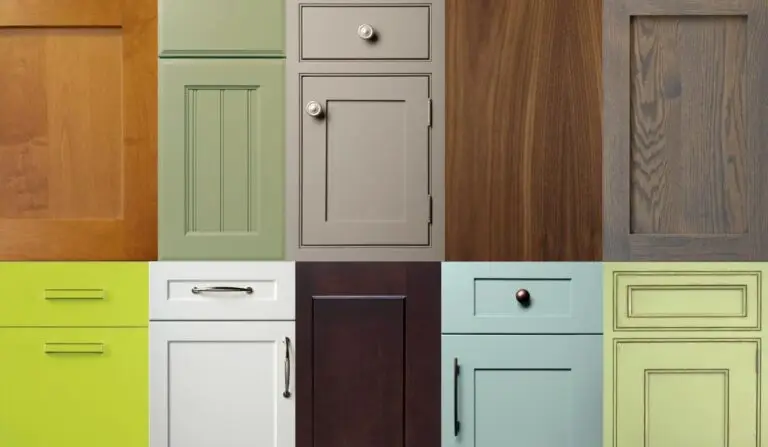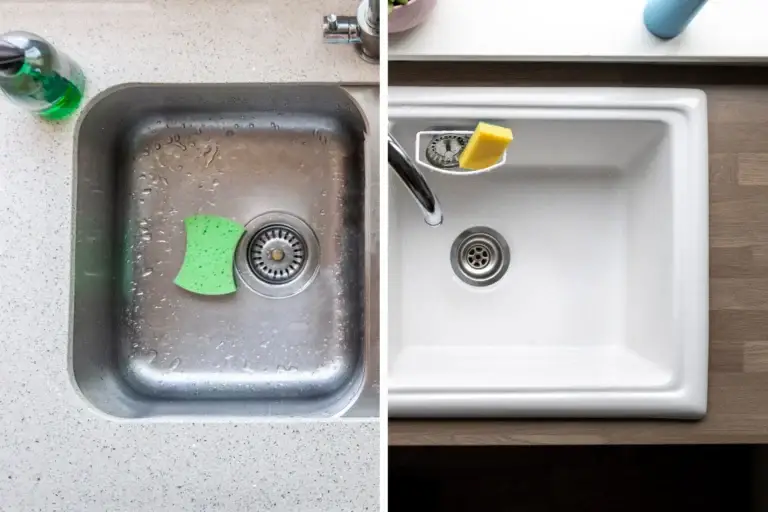Choosing the right kitchen countertop can be overwhelming with so many options available. In this guide, we will cover the most popular kitchen countertop materials, providing a detailed overview of each option, including pros, cons, and key features to help you make an informed decision for your kitchen.
– Introduction
The kitchen countertop is one of the most used surfaces in any home, making the choice of material an essential part of kitchen design. Countertops come in various materials, each with unique qualities. This guide breaks down the most popular options to help you find the best fit for your needs, style preferences, and maintenance considerations.
Laminate Countertops
What is Laminate?
Laminate countertops are among the most affordable and widely used options. They are created by bonding layers of paper and resin to form sheets, which are then adhered to particle board. Popular brands include Durapel, Axiom, and Formica.
Pros of Laminate
- Budget-friendly: One of the most affordable countertop options.
- Easy to install: Simple to cut and fit compared to stone surfaces.
- Variety of choices: Available in a wide range of colors, designs, and textures.
- Non-porous surface: Stain-resistant, making it easy to clean.
Cons of Laminate
- Not heat-resistant: Hot pots can scorch the surface.
- Not scratch-resistant: Easily scratched by sharp objects.
- Vulnerable to water: If water seeps into seams or cuts, it can cause the substrate to warp.
- No undermount sinks: Due to the structure, undermount sinks and drainage grooves are not possible.
Wooden Countertops
What is Wood?
Wooden countertops are made from natural wood planks, offering a warm and rustic aesthetic. Common woods include oak, walnut, and beech, and they come in different stave widths ranging from 40mm to full staves of 80-120mm.
Pros of Wooden Countertops
- Natural warmth: Provides a cozy, soft texture that can complement both modern and traditional kitchens.
- Repairable: Scratches and stains can be sanded down and refinished.
- Customizable: Allows for under-mount sinks and drainage grooves.
Cons of Wooden Countertops
- High maintenance: Requires regular oiling and sealing to protect from water and stains.
- Vulnerable to water and heat: Prone to damage from water exposure and hot pots.
- Soft material: Easily scratched and dented.
Granite Countertops
What is Granite?
Granite is a natural stone quarried from the earth, known for its durability and unique appearance. Each slab is one-of-a-kind, with popular varieties including Star Galaxy, Nero Absoluto, and Blue Pearl.
Pros of Granite Countertops
- Unique patterns: Each slab has distinct veining and patterns, adding character to your kitchen.
- Heat and scratch-resistant: Handles heat and heavy use well, ideal for busy kitchens.
- Durable: With proper care, granite countertops can last a lifetime.
Cons of Granite Countertops
- Requires sealing: Needs to be sealed annually to prevent staining.
- Limited color options: Since it’s a natural material, the color range is limited compared to man-made options.
- Heavy: Requires professional installation due to its weight.
Quartz Countertops
What is Quartz?
Quartz countertops are engineered stone surfaces made from about 85-95% natural quartz, mixed with resins and pigments. Popular brands include Silestone, Caesarstone, and Cambria.
Pros of Quartz Countertops
- Wide range of colors: Available in many colors and patterns, with consistent designs.
- Low maintenance: Non-porous, requiring no sealing.
- Durable: Resistant to scratches, stains, and moisture.
Cons of Quartz Countertops
- Heat-sensitive: Can scorch if hot pans are placed directly on the surface.
- Staining risk: Some heavy-duty stains (turmeric, wine) may require extra effort to remove.
Acrylic Countertops
What is Acrylic?
Acrylic countertops are made from acrylic resins combined with minerals and pigments. Brands like Corian, Hi-Macs, and Staron are known for offering a variety of styles.
Pros of Acrylic Countertops
- Seamless design: Joins are invisible, providing a smooth, continuous look.
- Custom shapes: Can be molded into custom designs, including integrated sinks.
- Repairable: Scratches and minor damage can be buffed out.
Cons of Acrylic Countertops
- Prone to scratching: Soft surface that scratches more easily than stone.
- Can discolor: Especially in high-use areas like around the sink.
- Not heat-resistant: Hot pans can scorch the surface.
Porcelain and Ultra-Compact Countertops
What is Porcelain Composite?
Porcelain countertops are fabricated from materials like quartz, glass, and porcelain. Brands such as Dekton, Neolith, and Lapitec offer these ultra-durable surfaces.
Pros of Porcelain Countertops
- Extremely durable: Resistant to heat, scratches, and stains.
- Low maintenance: No sealing required, and easy to clean.
- Consistent pattern: Offers a uniform color and pattern across the slab.
Cons of Porcelain Countertops
- Expensive: Can be one of the more costly options, especially for thicker slabs.
- Limited color choices: Fewer design options compared to quartz.
- Fragile during transit: Slabs can crack during transportation or installation.
Marble Countertops
What is Marble?
Marble is a metamorphic rock known for its beautiful veining and unique appearance. Carrara and Calacatta are the most popular varieties.
Pros of Marble Countertops
- Luxurious look: Marble offers timeless beauty and elegance.
- Naturally cool: Ideal for bakers and those who work with pastry.
- Heat-resistant: Withstands heat from cooking.
Cons of Marble Countertops
- Requires sealing: Must be sealed regularly to prevent stains and scratches.
- Easily damaged: Soft surface that scratches and stains easily.
- High maintenance: Requires more care compared to other materials.
Conclusion
Choosing the right countertop for your kitchen depends on your priorities—whether it’s affordability, durability, or aesthetics. Laminate and wooden countertops are great budget-friendly options, while granite, quartz, and porcelain offer long-lasting durability and beauty. Ultimately, your choice should balance practicality with style to create your dream kitchen.
FAQs
1. What is the most budget-friendly countertop option?
Laminate countertops are the most cost-effective choice, offering a wide variety of styles at an affordable price.
2. Can quartz countertops be damaged by heat?
Yes, quartz can scorch if hot pots are placed directly on it, so it’s best to use trivets or heat pads.
3. What countertop materials require the least maintenance?
Quartz and porcelain countertops require minimal maintenance, as they do not need sealing and are easy to clean.
4. Is granite better than marble for a busy kitchen?
Yes, granite is more durable and resistant to scratches and stains compared to marble, making it a better option for high-traffic kitchens.
5. Can acrylic countertops be repaired easily?
Yes, minor scratches and damage on acrylic countertops can be buffed out, making them a low-maintenance option.




